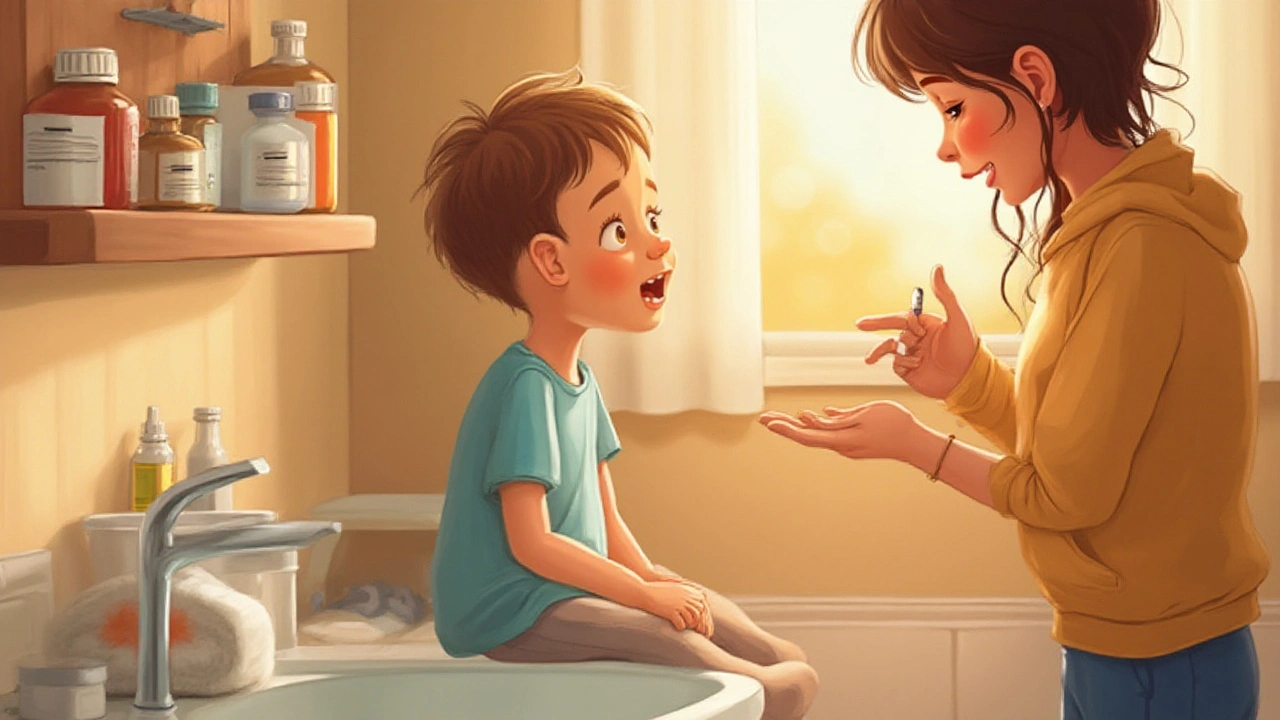Otitis Externa: What You Really Need to Know About Ear Infections
Ever had that annoying itch or pain in your ear after a swim, sweaty workout, or maybe after cleaning your ears a bit too thoroughly? That’s classic otitis externa, also known as swimmer’s ear. It’s more common than most people think and can mess with daily life fast, especially when sleeping or wearing headphones feels impossible.
So, what actually causes otitis externa? It usually pops up when water, sweat, or even humidity gets trapped in your ear canal, turning it into a breeding ground for germs. Think warm, damp spaces—bacteria love that. Sometimes, it’s also triggered by small cuts from cotton swabs, scratching, or earplugs. Fungi can be to blame, too, but bacteria top the list.
Symptoms hit hard and quick. You might notice itching first, then pain, swelling, or even some funky-smelling ear discharge. Ear tugging hurts, sound can get muffled, and the skin around the canal may look red or feel tender. If you squeeze just in front of your ear and it hurts, that’s a pretty big clue you’re dealing with otitis externa.
Worried about the best way to treat it? The gold standard is ear drops that tackle bacteria and swelling. Pharmacies carry antibiotic drops (like ciprofloxacin or neomycin) often mixed with steroids for faster relief. If you catch it early, pain usually eases up in a day or two after starting treatment. But don’t share drops or leftover meds—ear infections are definitely not one-size-fits-all.
Avoid sticking anything in your ear while it’s healing. That means earbuds, cotton swabs, or even a casual finger scratch. If you wear hearing aids, let your doctor know for safe use. Swimming and soaking in pools or tubs is off-limits until the pain and discharge are gone. Bathing is fine, but keep your ears dry. Cover the canal with a cotton ball smeared with a bit of petroleum jelly if you must shower.
If you notice your symptoms aren’t improving in a couple of days, or the pain is getting worse, don’t wait—see a doctor. In rare cases, the infection can spread and cause serious complications. Diabetics and people with weakened immune systems are at higher risk and should always get medical advice quickly.
Want to avoid swimmer’s ear? Dry your ears well after water exposure, tilt your head to let water drain, or dab the canal gently with a tissue. Skip alcohol or hydrogen peroxide in your ears unless a healthcare professional suggests it—these can actually dry out or irritate the skin, sometimes making things worse.
Dealing with otitis externa is a pain—literally. But most people recover quickly with the right treatment and solid prevention habits. If ears are a recurring issue, talk with your doctor about underlying causes, like eczema or allergies. Addressing the root usually means fewer earaches and less time sitting out of your favorite activities.

How to Use Ear Drops Safely for Ear Canal Infections: Step-by-Step Guide
Learn how to use ear drops for ear canal infections. Find essential steps, expert tips, and answers to common concerns in this practical guide.
view more